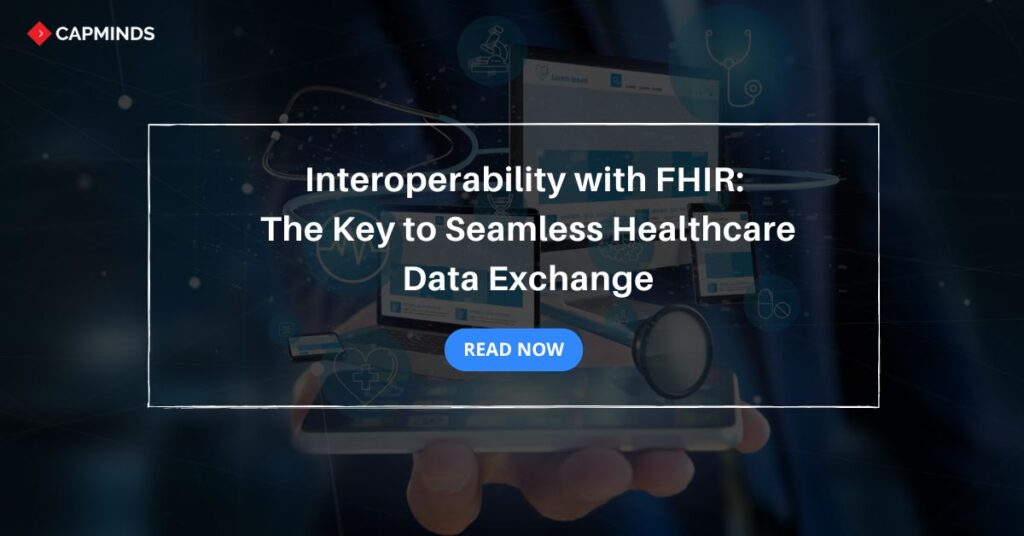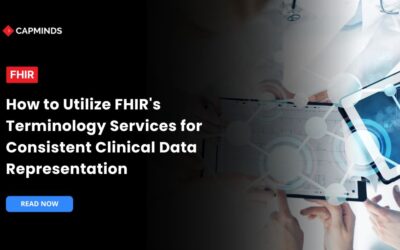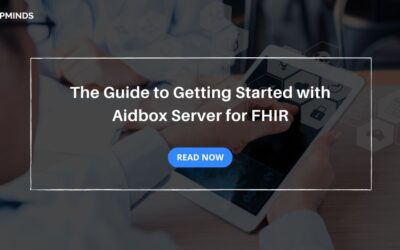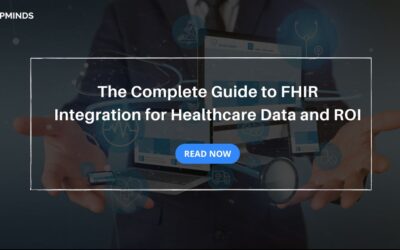Interoperability with FHIR: The Key to Seamless Healthcare Data Exchange
Today’s Healthcare organizations strive to find the right key to interoperability among disparate electronic health record (EHR) systems. Physicians need the capability to easily exchange healthcare data to improve care coordination, better patient outcomes, and potentially lower costs.
Current strategies for data exchange have fallen short, as health information exchange networks have not spread widely. Fast Health Interoperability Resources promises to change this by creating plug-ins for EHRs. FHIR-based APIs could allow providers to pull discrete data from various EHRs and expand EHR capabilities. In this blog post, you’ll learn how FHIR-based APIs enable seamless data sharing and overcome EHR integration challenges.
What is FHIR?
Fast Health Interoperability Resources (FHIR), a new standard framework, promises to change healthcare data exchange by creating plug-ins for EHRs without the need for interfaces. FHIR-based APIs, when fully developed, could allow providers to pull discrete data from EHRs other than their own.
This enables consumers to use data from their electronic records in mobile health apps and expand the capabilities of EHRs by enabling providers to select apps with features not present in their EHRs.
Here are some crucial points to know about FHIR healthcare standards:
- FHIR is an interoperability standard for healthcare data exchange.
- It employs RESTful APIs to facilitate data exchange.
- Supports various data types, including XML and JSON.
- A resource-based paradigm for providing health information.
- Modular components allow for easy extension and customization.
- Many healthcare organizations throughout the world have already implemented it.
- Encourages secure and smooth data sharing.
Related: The Beginners Guide to Getting Started with FHIR on OpenEMR
The Current Interoperability Challenge in Healthcare
Health information exchange networks have not spread widely, and a strategy for secure messaging that utilizes Internet conventions has not yet gained traction with a minimum number of suppliers.
Even when healthcare providers do exchange data, it is usually in the form of PDF care summaries, which limits interoperability and the effective use of data across systems.
How FHIR-Based APIs Enable Seamless Data Sharing
1. Improves Data Access Efficiency
- FHIR-based APIs allow providers to pull data from EHRs.
- It’ll increase access efficiency and enable providers to work with data directly in their systems.
- This improvement in data liquidity can significantly enhance the workflow of healthcare providers, making data access more practical and streamlined
2. Enables Real-Time Data Sharing
- FHIR enables real-time data exchange by using API-driven connections to exchange data instantly.
- This facilitates timely updates and interactions between different healthcare systems.
- Additionally, it will improve coordination among healthcare providers and enhance the ability to provide up-to-date patient care.
3. Empowers Patient Data Control
- FHIR-based APIs enable consumers to use data from their electronic records in mobile health apps or store it in personal health records.
- This will empower patients with more control over their health information and the ability to share it as needed with providers or family members.
4. Reduces Data Exchange Costs
- The plug-and-play nature of FHIR APIs reduces the reliance on costly custom interfaces.
- By standardizing data exchange methods, FHIR can lower expenses associated with data sharing.
- This way, interoperability becomes more affordable for healthcare organizations.
5. Supports Cross-System Compatibility
- FHIR’s internet-based approach to sharing and exchanging information allows data to move across various platforms and systems.
- Also, it supports compatibility between different EHRs and enables healthcare providers to access relevant patient data regardless of the EHR platform used.
Related: The Basic Guide to Integrating Your Healthcare Data Architecture with FHIR
SMART on FHIR: Extending FHIR’s Capabilities for App Developers
FHIR alone cannot give developers all the components needed to write apps for EHRs. It translates clinical data into usable objects, but developers need to understand vocabulary constraints and data coding. To fill these gaps and offer a user interface, FHIR is used with a platform called SMART (Substitutable Medical Applications and Reusable Technology).
From the developer’s perspective, SMART on FHIR is a building block for clinical data, enabling a wider range of apps, which are being adopted by large healthcare organizations that have created FHIR-enabled servers.
Related: How to Leverage SMART on FHIR with Athenahealth EHR for Streamlining Data Communication
Overcoming EHR Integration Challenges with FHIR
- Flexible Data Exchange Scenarios: SMART on FHIR enables various interoperability options for healthcare providers.
- Data Extraction via FHIR API: Hospitals and doctors can use the FHIR API to extract data from other providers’ EHRs.
- Patient-Controlled Health Records: Patients can download their health information to personal health records (PHRs) in the cloud.
- Selective Data Sharing: Patients can decide which information to share with specific providers, enhancing patient empowerment.
- Timely Access for Clinicians: Clinicians can access relevant clinical data more easily, improving decision-making and patient care.
CapMinds HL7 FHIR Service for Healthcare Practice
CapMinds offers the best all-in-one health interoperability solution for healthcare practices.
Our HL7 FHIR service will understand your clinical needs and requirements to tailor our solution. With years of experience in this field, we have faced many challenges and tackled them with ease.
However, FHIR implementation is often associated with challenges, and CapMinds will help you to navigate all the challenges. Why can CapMinds be your Go-to Interoperability Solution?
- We are experienced professionals with years of experience in the field.
- Our technical team is an expert who will analyze your healthcare practice thoroughly to tailor the Interoperability solution.
- We prioritize safety, security, encryption, and authentication to protect your healthcare practice patient’s data.
- Our comprehensive solution ensures seamless interoperability adhering to industry standards, and using standard protocols.
- We offer comprehensive training sessions to healthcare staff.
- Our affordable health interoperability solution benefits healthcare practice at all levels.
If you are searching for the best interoperability service for your practice, CapMinds is your choice. We can assist you by navigating all potential challenges and ensuring seamless health data exchange.
“Reach out to CapMinds Health Data Exchange Solutions for your Healthcare Practice”.




